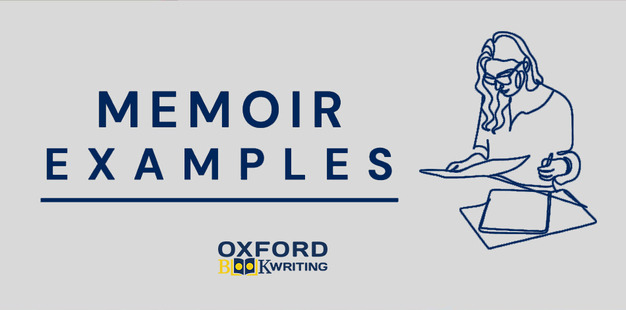Memoirs have always captivated readers with their ability to reveal personal stories that are deeply human and often transformative. Whether it’s a tale of overcoming adversity, a coming-of-age journey, or a life-altering moment, a well-written memoir can offer valuable lessons and connect readers to the experiences of others. For aspiring writers, writing a memoir can seem like a daunting task, but exploring memoir examples can provide insight into how to craft a compelling narrative. This guide will introduce you to real-life memoirs that teach essential lessons, and show you how you can apply these examples to your own writing process.
What Is a Memoir?
Before diving into memoir examples, it’s important to understand what a memoir truly is. A memoir is a non-fiction narrative focused on a specific aspect of a writer’s life. Unlike autobiographies, which cover the entirety of a person’s life, memoirs tend to zero in on a particular event, period, or theme. Memoir writing is about sharing personal experiences in a way that resonates with readers, offering them insights or emotional connections to the writer’s journey.
At the core of every memoir is authenticity. Readers seek real stories, and as such, writing a memoir involves presenting personal experiences with honesty and vulnerability. A great memoir not only tells the writer’s story but also reflects universal themes that readers can relate to or learn from.
Why Learn from Memoir Examples?
Learning from memoir examples is one of the best ways to understand the nuances of memoir writing. Examining these works can help you see how professional authors weave personal stories into broader themes, how they structure their narratives, and how they engage readers emotionally. Here are some of the key benefits of learning from memoir examples:
- Understanding Structure: Memoirs often follow a nonlinear structure, weaving in flashbacks or thematic connections across time. By studying memoirs, you can learn how to organize your own narrative to keep readers engaged.
- Character Development: A well-written memoir not only focuses on the writer but also on the people they encounter. You can learn how to develop your characters in a way that makes them vivid and relatable.
- Voice and Style: One of the most important aspects of memoir writing is developing a unique voice. Memoir examples give you insight into how authors use their tone, language, and style to convey authenticity and emotion.
- Themes and Lessons: Every memoir teaches a lesson—whether it’s about resilience, love, loss, or self-discovery. Analyzing the themes of memoir examples can help you understand how to craft a story with meaning and purpose.
Memoir Examples That Teach Valuable Life Lessons
Several memoirs stand out as powerful examples of how to turn personal experiences into valuable stories. Below are some well-known memoir examples that can teach you important lessons for your own writing a memoir journey:
1. The Glass Castle by Jeanette Walls
Jeanette Walls’ The Glass Castle is a poignant memoir that teaches about resilience, family dynamics, and the pursuit of dreams. In this memoir, Walls recounts her unconventional childhood, raised by parents who were creative but irresponsible and often neglectful. The story of how Walls eventually escapes poverty and builds a successful career despite her difficult upbringing offers a powerful lesson in perseverance.
What you can learn from The Glass Castle:
- Embrace vulnerability: Walls shares deeply personal and painful memories, which adds authenticity to the memoir.
- Non-linear storytelling: The memoir jumps between different times in her life, showing how past events influence the present.
- Power of resilience: The overarching theme of resilience can inspire anyone facing adversity.
2. Educated by Tara Westover
Tara Westover’s Educated is another memoir that offers insight into the power of education and the journey toward self-identity. Westover’s story is about growing up in a survivalist family in rural Idaho, where she had no formal schooling and was isolated from much of society. Her decision to pursue education, despite the obstacles and opposition from her family, is a testament to the importance of knowledge and self-determination.
What you can learn from Educated:
- Self-discovery: Westover’s memoir explores the process of finding one’s voice and identity in the face of family and societal expectations.
- Complex family dynamics: Westover navigates complex emotions regarding her family, showcasing the tension between love and personal growth.
- Emphasize transformation: Her memoir is a story of transformation, offering a lesson in the power of change and personal growth.
3. When Breath Becomes Air by Paul Kalanithi
Written by Paul Kalanithi, a neurosurgeon diagnosed with terminal cancer, When Breath Becomes Air is a memoir about life, death, and the pursuit of meaning. Kalanithi reflects on his dual roles as both a doctor and a patient, providing profound insights into the human experience, mortality, and the search for purpose. This memoir is deeply philosophical and offers profound reflections on the importance of living a meaningful life, no matter the time one has left.
What you can learn from When Breath Becomes Air:
- Coping with mortality: Kalanithi’s memoir provides insight into how to process the inevitable and how to live fully, even with limited time.
- Reflective tone: The author uses a reflective and meditative tone to convey deep thoughts and lessons learned through personal experience.
- Universal themes: The book speaks to anyone grappling with loss, illness, or finding purpose in life.
4. Becoming by Michelle Obama
Michelle Obama’s Becoming is a memoir that captures the journey of one of the most influential women of our time. Obama details her experiences growing up in Chicago, navigating her career, and being the first African-American First Lady of the United States. Her memoir not only tells the story of her life but also offers valuable lessons in leadership, resilience, and finding one’s voice.
What you can learn from Becoming:
- Empathy and connection: Obama’s candid and relatable storytelling makes her memoir a powerful example of connecting with readers.
- The power of mentorship: The memoir emphasizes the importance of mentorship, self-empowerment, and resilience.
- Navigating identity: Obama explores themes of race, gender, and identity, offering an insightful perspective on overcoming societal expectations.
How a Memoir Writing Service Can Help
Writing a memoir can be an emotionally challenging and intricate process. Many aspiring writers struggle with organizing their thoughts, finding their voice, or managing the scope of their story. This is where a memoir writing service can offer invaluable assistance. A professional writing service can help you structure your ideas, refine your narrative, and ensure your story is told in the most compelling way possible.
A memoir writing service can also assist with:
- Editing and revision: A professional service can help polish your writing, ensuring that your memoir is engaging, clear, and free from errors.
- Personalized guidance: Many services provide personalized feedback and help you through every stage of the writing process, from brainstorming to publishing.
- Handling sensitive topics: If your memoir involves recounting painful or traumatic experiences, a writing service can provide the necessary support to help you navigate these difficult memories in a constructive way.
How to Get Started with Writing Your Own Memoir
If you’ve been inspired by the memoir examples discussed above, you may be eager to start writing your own memoir. Here’s a simple guide to help you begin:
- Start with a theme: Focus on a particular event, period, or lesson that you want to convey in your memoir. This will help you narrow your scope and provide a clear direction.
- Outline your story: Make a list of key events or milestones you want to include. Consider using a timeline to organize your narrative.
- Write regularly: Set aside time each day to write. Even if you don’t feel inspired, writing a little bit each day can help you develop your story.
- Revise and refine: Memoir writing is a process. Don’t be afraid to revise, cut, or change sections of your story as you go along.
If you find that the process becomes overwhelming, consider reaching out to a memoir writing service to help guide you through the writing journey.
Conclusion
Memoir writing is a powerful and transformative way to share your life’s journey with others. By studying memoir examples, you can learn the art of storytelling, character development, and emotional connection. Whether you’re interested in writing about personal challenges, triumphs, or reflections, these examples provide essential lessons in crafting a compelling narrative. If you’re unsure where to begin or need extra guidance, don’t hesitate to seek out a memoir writing service to support you in sharing your unique story with the world.






